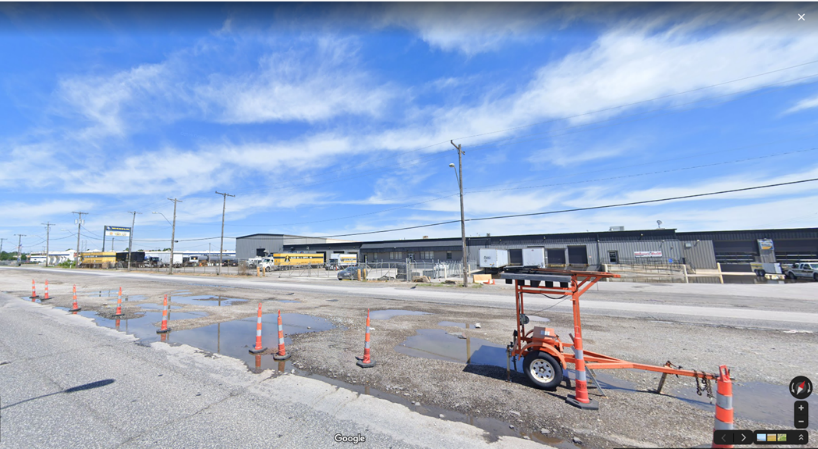
Abby Hoover
Managing Editor
When residents in the Lykins neighborhood complained of a growing homeless camp on a vacant lot, the neighborhood association began searching for unique solutions.
“The thought was, ‘They’re homeless people, we need to move them out,’ and so the fact is… if you force them away from someplace, they don’t just disappear, they’re going to go someplace,” Lykins Neighborhood Association Executive Director Gregg Lombardi said.
When he first began working with the neighborhood, there was a house with extensive fire damage because people were taking shelter there and starting fires to stay warm. The association got the City to demolish the house because it was dangerous, and they thought they had accomplished something positive. However, the displaced occupants moved two blocks away and took over two more vacant houses, which subsequently burned down.
“It’s a strong lesson that you can’t just run them off, there’s consequences of that, so we decided to sit down and talk to the people and make an agreement with them on the conditions of the homeless camp,” Lombardi said.
Tony and Ashley have been living in the tent camp since July, but had been run off from other camps a couple times.
Lombardi initially approached them to offer resources and ask that they limit the growth of the camp, not start fires and keep it as clean as they could. They and the four other people who live there have come out for neighborhood cleanups and taken odd jobs in the neighborhood.
Tony, who has been unhoused since his home burned in June, said it has been pretty rough because there aren’t a lot of programs out there for housing and getting re-established, or re-acclimated into society.
“We kind of feel like we’re out of the loop completely down here,” Tony said. “It’s been hard. We lost our vehicles, home, ID, everything all at once.”
Ashley had worked anywhere from customer service to demolition, and Tony worked in residential construction for 20 years.
“Rehabbers have hired them to do work, so it’s been a good relationship, we’ve gotten to know them and we feel there’s a trust relationship back and forth,” Lombardi said. “We have one of our rehabbers who feels comfortable letting them live in his house for the winter.”
Just days before Christmas, Tony, Ashley and her brother Kenny, packed up their few belongings and prepared to move into the home, owned by Robert Ontman, president of the Lykins Neighborhood Association.
“I’m ecstatic, this has been slow going and kind of painful, it’s been a learning experience,” Tony said, adding that he’s looking forward to getting back on his feet and back to work.
The pair, along with her brother, Kenny, and another formerly unhoused man, Richard, who moved in last month, agreed to follow a set of expectations in return for housing.
“I think it’s going to feel awesome,” Ashley said of living inside again.
“You get used to the noises out here – the gunshots, the sirens, or the traffic and trains,” Tony said. “So it’s going to be an adjustment, might be too quiet for me.”
Realistically, Lombardi knows as soon as Tony and Ashley move out, there will be people wanting to take their place. Because they are so well networked in the homeless community, the pair will have a say in who gets to assume their spots in the camp based on who has the greatest need and who is most likely to benefit from assistance. Lombardi said they hope to create a pipeline and have other rehabbers make properties available to help more people get back on their feet so they can get back to work and find permanent housing.
“Everyone assumes that if you’re homeless you have substance abuse or your mental capacity isn’t right, or something like that, but ours is just circumstance,” Tony said. “We got knocked down to our knees and we haven’t been able to get back up.”
Though they initially faced opposition from neighbors, once the residents of Lykins got to know them and saw them cooperating with the police, social workers and association, they’ve been able to coexist.
“It’s a huge advancement from where I’m at and I’m thinking at 50 years old, I’m not going to have a whole lot of opportunity, a whole lot of time to get on my feet, so all the help I can get,” Tony said. “I’m too prideful to stick my hand out and say, ‘gimme, gimme, gimme,’ I can’t hold a sign. I’d rather knock on someone’s door and clean up dog debris, make a few bucks.”
For Tony, it was hard to find work as he was recovering from being shot in the leg, which happened prior to the house fire. With the construction industry looking for younger and cheaper workers, Tony’s years of experience meant less.
“It helps them and us,” Ontman said. “We’re just looking to better our people and our community, you know, the old cliche of a hand up and not a hand out. It’s about providing opportunities all of us need, sharing God’s love.”
Ontman has an 8-year-old son who wanted to help less fortunate people for Christmas, and Ontman is glad to be able to provide a good example.
“We came and tried to find a balance between property rights and helping the neighborhood, but also helping individuals,” Ontman said. “We don’t believe in just letting anybody do anything, but we also don’t believe in being heartless and turning our back on our neighbors, so if there is a solution and people are willing to work with it.”
Ontman tells the unhoused people who work with him that although he isn’t willing to work harder than they are to better their lives, if they are willing to take the steps and do what’s needed to get themselves in a better position, then he and the neighborhood will try to provide those opportunities and let people do their own work. He said it has been a good system so far.
“When people involve themselves in their solution and put in the hard work that they do better than somebody coming in and trying to rescue and be the Superman or something,” Ontman said.
The lot where the tent camp was set up has been for sale for a long time, Ontman said, adding that the owner would probably like to sell it but won’t get a buyer with people camping there. So far, Lykins has acquired 80 properties to create low-income permanent affordable housing with their partners.
“We’re trying to develop where we’re not only rehabbing abandoned houses and distressed properties, but also trying to get new houses built on vacant lots,” Ontman said. “Because there’s no new housing market really, then they sit for a while… we’re not saying this is the solution for every situation, but it was for this particular one.”
Tony and Ashley were given employment opportunities to prove their trustworthiness and willingness to work to Ontman, who has a lot at stake in this experiment, too. In the meantime, they were given things to keep their camp clean and make it more comfortable.
Ontman said statistics show that people in this situation are more vulnerable to COVID-19 because of health issues, lower nutrition and other factors.
“One of our big things is that we really, really believe that opportunity is better when it comes from the neighborhood as opposed to from the government,” Ontman said. “We really believe very strongly that individuals and neighborhoods can solve their own problems much more efficiently.”
When they arrived at their new home, Richard, who has been in Northeast his whole life, pointed out the Christmas tree, which he knew Ashley would be excited for since she hadn’t had one for two years.
“Getting shelter is just a dramatic thing,” Richard said. “If you’re cold and you can’t sleep, you’re hungry, you can’t get up and go to work. It’s hard to do anything.”
Richard came through the same camp as Tony, Ashley and Kenny and also worked with Ontman. They will now be sharing a five bedroom home in the Northeast.
At some point, after finding work and saving up enough money, Lombardi said the plan is for them to move on to more permanent housing so they can bring in new people from the camp.
“It’s actually helpful for the rehabbers to have someone living in the houses they’re rehabbing, anytime, but particularly over the winter because people get in and start fires and things like that,” Lombardi said. “We’re going to be recruiting the rehabbers to have other homeless people move in. You really have to have a relationship of trust if that’s going to work, and so we get to know people for six weeks or so, that’s the idea, and then they can transition into actual housing.”
The housemates know that people will be watching them, and if this works it will help other people.
“You really need to get to know them individually to know who a project is going to work for, who it’s not,” Lombardi said.
In his experience, if an opportunity is publicized, oftentimes the people in least need of assistance are first in line. But getting to know the people in the neighborhood helped them figure out who is really in need and who will benefit more and make the most out of the opportunity. With the neighborhood’s limited time and resources, they are selective with their projects and make sure to follow them through to the end. They also focus on taking care of youth and the elderly.
Richard, Kenny, Tony and Ashley’s last names and new address have been omitted from this story for their safety.



















